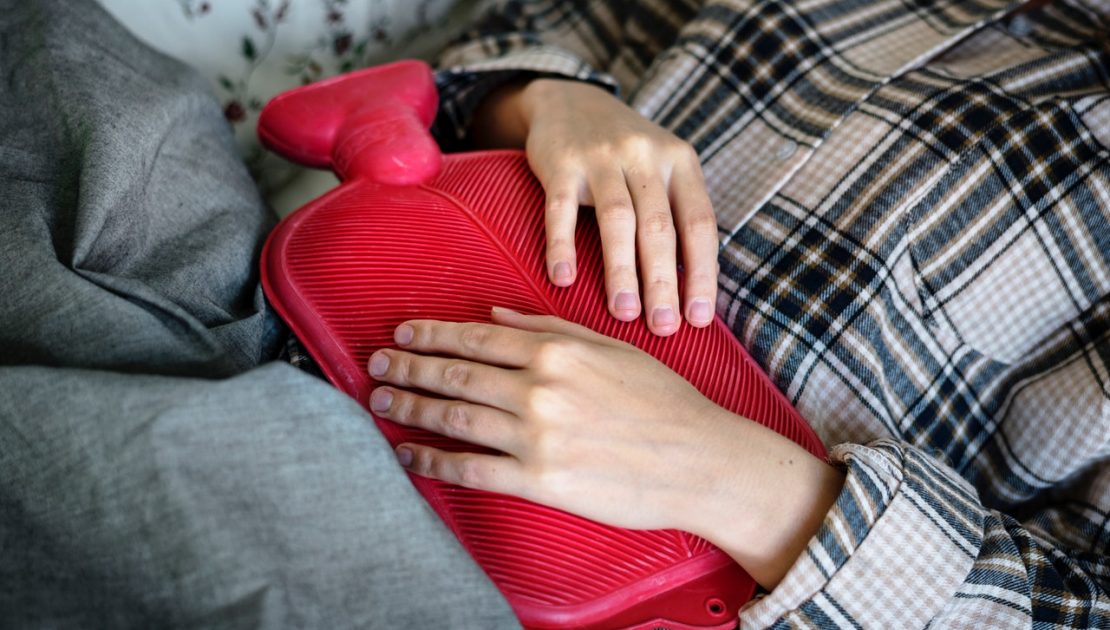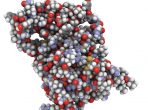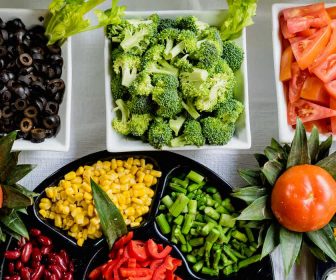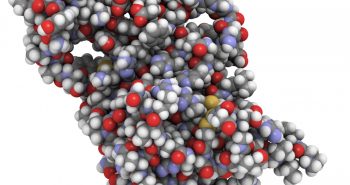Subscribe to the our newsletter to receive latest news straight to your inbox.
Negative Impacts of Air Pollution
Importance of Protein and Vitamin D for Athletes
4 Best Tips To Follow For Quick Lift Repair
Ways to Survive a Hot Summer Day
5 Best Way To Find House Cleaning Services
How Athletes Can Recover From Knee Replacement Surgery?
Why Parents Need to Maintain Traditional Values at Home?
How Parents Can Gain Respect From Children?
Beneficial Herbs for Athletes
Tips on How To Buy The Right Refrigerator For Yourself
Things You Should Know About Muscle Brain
How Parents Should Deal With Fussy Eaters At Home?
The Impact The Art Deco Era Had On Different Industries
How Can a Professional Assignment Help Contribute to Your Success as a Student?
What to Do When Children Misbehave?
How Sex Can Improve Your Period & How to Do It Better
How to Prepare Children for the First Day of Preschool?
How Companies Can Boost the Hiring Process?
Why Teenagers Want to Be Loved?
Data Management Challenges Facing Small Business Owners
Believe It or Not: 10 Myths on Studying in the USA
How to Prevent Regression on Autistic Children?
Benefits and Risks of Sunlight
How to Make Children Perform Better at School?
Ultimate San Francisco CITY GUIDE for Youngsters: Places to See by Car
Things worth Considering for How to get into Digital Marketing
3 Ways to Improve Your Body Positivity
How To Handle The Last Minute Moving – Helpful Tips
What Should Be Included In The Home Inspection Checklist
Benefits of HGH for Athletes
How Alcohol Affects Athletes?
Long and Spacious: 5 Most Luxurious Estate Cars
How to Price Your Car? | Helpful Guidelines
How To Choose The Best Synthetic Grass For Your Garden
Luxury Driving: 6 Chic Premium Cars to Feel Like a Celebrity
How Athletes Should Deal With Anxiety
How Aging Athletes Can Stay in Shape?
3 Tips to Remove Profile Pictures from Zoom
TOP 5 MINI CARS For Solo Travelers
Six Dental Consideration Tips to Prevent Your Child from Getting Braces
Reasons Children Become Fussy Eaters
Places in Calgary You CANNOT SEE Without a Car
How to Make an Effective Parenting Plan?
Easy Driving: 10 Options that Should be Included in Each Modern Car
Six best life hacks for the motorists
HOW DO I PREPARE FOR MY FIRST YEAR OF LAW SCHOOL?
What to See in Portugal? 5 Amazing Sights of Algarve
Benefits of Yoga for Athletes
How Alcohol Causes You To Gain Weight?
Common Types of Childhood Anxiety
Travel Medical Insurance: All the basics you need to know
Men, Can These 7 Intimacy Tips Save Your Sex Life?
Festival of Lights: Buy These Exciting Smartphones in 2019
Reasons You Are Susceptible to Mental Problems
The World of Cars: 10 Amazing Modern Innovations
Seven Ways to Become Productive Parents
The Economic System of the United States of America
First-Time Home Owner: Affordable Interior Design Ideas
TOP 7 Ways to Become BETTER DRIVER!
Health Benefits of Memory Foam Mattresses
How to Control The Way Children Use the Internet?
Why Teenagers Become Rebellious So Easily?
How Digital Marketing Company Can Help Your Business
Health Risks of X-Ray Scans
How to Laser Target Your Ideal Audience Using Market Research?
Benefits of Coffee for Professional Athletes
SEVEN STRATEGIES TO IMPROVE YOUR WRITING SKILLS
What should always be in a car on a long journey?
Georgia Cabins With A Water View Are Like A Home Away From Home

These Habits May Be Making Your Period Worse
Ever feel like your period symptoms are unbearable some months, but not other months? This may be an indication that your lifestyle habits are affecting your cycle. From giving in to cravings to going to bed later than you should, we’ve all been guilty of these. Keep reading to see which one of these may…

Ever feel like your period symptoms are unbearable some months, but not other months? This may be an indication that your lifestyle habits are affecting your cycle. From giving in to cravings to going to bed later than you should, we’ve all been guilty of these. Keep reading to see which one of these may be the culprit of your period pains!
Eating salty or sweet foods
Ever notice yourself craving extra salty chips or a big bowl of ice cream out of nowhere and then suddenly realize, “Oh, my period must be coming!” During menstruation, your hormones get a little out of whack and impel you to crave certain nutrients; usually something sweet or something salty. However, salty foods tend to make your body retain extra water leading to excessive cramping and increased bloating. On the other hand, eating sweets can lead to a spike in your sugar levels, which have already fluctuated due to your current change in hormones. Your monthly sweet tooth could actually be causing you intensified cramping and inflammation.
As hard as it may be to refrain from indulging on your cravings when all you really want to do is snack in bed with your favorite show (sounds amazing, right?), try to limit these foods as much as possible.
A few foods that can make your period symptoms better:
- Salmon – contains omega-3 fatty acids known for their anti-inflammatory antioxidant properties
- Bananas – contain magnesium, potassium, and fiber, which are all great for stomach troubles
- Oranges – contain vitamin D and calcium, both great for anxiety and depression. Helps alleviate cramps and improves overall mood
- Lemons – contain fiber and many vitamins, helpful for mood swings, bloating, and boosting energy
- Chamomile – helps relax uterine muscles and calms your mind
Skipping birth control pills
If you currently are on a birth control method, whether it be for family planning or for health reasons, not using it correctly can worsen your symptoms. Missing a pill or doubling up can seriously put your hormones on the fritz. This can lead to breakthrough bleeding and a disrupted cycle. If you find yourself taking your birth control method incorrectly, it’s a good idea to reevaluate what option is best for you.
If you’d like to continue hormonal birth control, you can switch to methods such as the IUD or shot if you keep forgetting to take the pill each night. If it’s a matter of forgetting to refill your prescription, signing up for a monthly online birth control subscription could be a good switch. Or if the hormonal option isn’t working for you, ending the pill altogether and switching to condoms or non-hormonal methods might be the best option. Be sure to speak to a doctor to find the right method for you.
Drinking caffeine
Although it’s common to feel extra tired and slumped around your period, think twice before pouring that second cup of coffee. Too much caffeine, in general, causes your blood vessels to restrict (or vasoconstriction). This can lead to a drop in blood supply to where you really need it, the lining and muscles in your uterus. Unfortunately, this can lead to intensified cramps and unnecessary pain.
I would never suggest that you quit caffeine cold turkey if you just need that cup of tea or coffee to get your day started. However, cutting back during your period can help prevent worsening symptoms. Opting for mildly caffeinated tea during this time can be a better option if you’re an avid coffee drinker, as many teas have great benefits for overall health.
Using harmful feminine products
Did you know that tampons aren’t naturally white? They have to go through a chlorine-bleaching process to get to that stark-white color. Non-organic tampons and pads include toxins such as chlorine, dioxins, glyphosate, polyethylene, polypropylene, and rayon. Your body can react to these chemicals, throwing off your pH levels and impeding your body’s natural process.
Ditch the scented options and switch to organic feminine products instead. This will help ensure that your pH levels are balanced the way they’re meant to be. Although, it’s important to note, switching to an organic tampon does not mean that you can’t get Toxic Shock Syndrome (TSS). Be sure to still switch your tampon every 4-6 hours based on your flow and the tampon size you purchase.
Lack of sleep
Although hormonal changes can cause insomnia in some instances, skimping on sleep can cause worsening period symptoms. Without enough sleep, your body will start to release the stress hormone, cortisol, which affects the functionality of the pituitary gland. Since the pituitary gland regulates hormones, this can greatly impact your monthly cycle. Imbalanced hormones can cause your period to not come on time (or at all), or cause your flow to be heavier and more painful than normal. We can all agree, this isn’t ideal.
To get into the habit of getting enough sleep each night, especially during your period, it’s crucial that you create a healthy sleep-friendly environment. To start, stop watching television or doing work while in bed. Your brain needs to associate your bed with sleep so when it’s time to settle in for the night, your body starts naturally winding down. Additionally, it’s crucial to put down your electronics before bed so your mind can disconnect. Read a book instead as this helps reduce stress and boosts brain power.
For some women, there are period symptoms that shouldn’t be ignored and could indicate something else. Pay attention to your body and the way your cycle changes or persists. If you experience abnormal or very painful periods, it’s important to visit your doctor and discuss your concerns. Taking care of your health should always come first!
Recommended Articles
-
Benefits of HGH for Athletes
6 years ago7072 views -
Easy Driving: 10 Options that Should be Included in Each Modern Car
5 years ago9748 views -
TOP 7 Ways to Become BETTER DRIVER!
5 years ago7505 views -
Ways You Can Transform Your Business This Year
2 years ago2304 views -
Six Of The Must-See Beaches Near London
11 months ago1828 views -
How Alcohol Affects Athletes?
5 years ago7549 views
Leave a Reply
You must be logged in to post a comment.

















































































1consecutive
3seminar
writing a phd dissertation https://professionaldissertationwriting.org/
dissertation writing services in usa https://dissertationwritingcenter.com/
dissertation topics https://dissertationhelpexpert.com/
online edd no dissertation https://accountingdissertationhelp.com/
dissertation proposal methodology example archived https://examplesofdissertation.com/
writing tutor https://writing-a-dissertation.net/
dissertation help india https://bestdissertationwritingservice.net/
18 month doctorate without dissertation https://businessdissertationhelp.com/
how to cite a dissertation https://customdissertationwritinghelp.com/
what is a dissertation https://writingadissertationproposal.com/
buy art online berlin https://dissertationhelpspecialist.com/
dissertation writing https://dissertationhelperhub.com/
cheap dissertation help in los angeles https://customthesiswritingservices.com/
borgata pa online casino app https://firstonlinecasino.org/
casino movie online https://onlinecasinofortunes.com/
online casino game https://newlasvegascasinos.com/
online casino with no minimum deposit https://trust-online-casino.com/
riversweeps casino online https://onlinecasinosdirectory.org/
riversweeps online casino login page https://9lineslotscasino.com/
new online casino no deposit bonus https://free-online-casinos.net/
inferno casino online https://internet-casinos-online.net/
caesars online casino bonus code https://1freeslotscasino.com/
best online casino michigan https://vrgamescasino.com/
aladdin casino online https://casino-online-roulette.com/
online casino spain https://casino-online-jackpot.com/
jackpot casino online https://onlineplayerscasino.com/
hard rock casino online https://ownonlinecasino.com/
online casino arizona https://all-online-casino-games.com/
no deposit casino online https://casino8online.com/
free vpn\ https://freevpnconnection.com/
business class vpn router https://shiva-vpn.com/
the best vpn free https://freehostingvpn.com/
free vpn for linux https://ippowervpn.net/
vpn free download for pc https://imfreevpn.net/
best vpn for 2022 https://superfreevpn.net/
free phone vpn https://free-vpn-proxy.com/
gay senior dating san antonio https://gay-singles-dating.com/
international gay dating website https://gayedating.com/
chubby cchup gay dating https://datinggayservices.com/
meet and fuck https://freephotodating.com/
which is best online dating site https://onlinedatingbabes.com/
online site https://adult-singles-online-dating.com/
free local dating site https://adult-classifieds-online-dating.com/
marriage not dating https://online-internet-dating.net/
dating sites for totally free for usa https://speedatingwebsites.com/
sating websites https://datingpersonalsonline.com/
facebook dating app https://lavaonlinedating.com/
top online sites https://freeadultdatingpasses.com/
amature dating co https://virtual-online-dating-service.com/
europe online dating https://zonlinedating.com/
best online dating service https://onlinedatingservicesecrets.com/
online casino no deposit free spin https://onlinecasinos4me.com/
online casino slots https://online2casino.com/
casino free online https://casinosonlinex.com/
gay chat mature https://newgaychat.com/
chat muscle gay https://gaychatcams.net/
gay connect chat https://gaychatspots.com/
gay pnp freegay chat denver https://gay-live-chat.net/
gay chat webcam https://chatcongays.com/
gay priest chat https://gaychatnorules.com/
wed chat gay free https://gaymusclechatrooms.com/
gay men chat rooms https://free-gay-sex-chat.com/
free gay phone chat trial https://gayinteracialchat.com/
best write my paper website https://term-paper-help.org/
buy dissertation paper https://sociologypapershelp.com/
write my statistics paper https://uktermpaperwriters.com/
buying papers online college https://paperwritinghq.com/
buy college papers online https://writepapersformoney.com/
write my paper canada https://top100custompapernapkins.com/
write my paper for me https://cheapcustompaper.org/
pay people to write papers https://writingpaperservice.net/
paper writers college https://mypaperwritinghelp.com/
buy cheap paper https://writemypaperquick.com/
college paper writing services https://essaybuypaper.com/
3billiard
coursework sample https://brainycoursework.com/
coursework psychology https://courseworkninja.com/
buy coursework online https://courseworkdownloads.com/
cpa coursework https://coursework-expert.com/
coursework service https://teachingcoursework.com/
do my coursework https://buycoursework.org/
creative writing coursework ideas https://courseworkdomau.com/
zoosk online dating site https://freewebdating.net/
european singles dating sites https://jewish-dating-online.net/
free meeting online https://jewish-dating-online.net/
online websites https://sexanddatingonline.com/
american dating https://onlinedatingsurvey.com/
online date https://onlinedatinghunks.com/
japanese chubby https://datingwebsiteshopper.com/
free dating ads https://freedatinglive.com/
amature dating co https://freewebdating.net/
itsMasum.Com
[…]here are some hyperlinks to internet sites that we link to simply because we feel they may be really worth visiting[…]
austin jobs
[…]Wonderful story, reckoned we could combine some unrelated data, nevertheless truly really worth taking a search, whoa did 1 discover about Mid East has got additional problerms too […]
nz jobs
[…]Sites of interest we have a link to[…]
gulf jobs central
[…]very handful of web-sites that happen to be in depth below, from our point of view are undoubtedly nicely really worth checking out[…]
free webcam sex
[…]always a huge fan of linking to bloggers that I like but really don’t get a good deal of link like from[…]
live cam sex
[…]here are some hyperlinks to web pages that we link to due to the fact we think they may be worth visiting[…]
cheap sex chat
[…]Here is a superb Blog You may Locate Interesting that we Encourage You[…]
live sex webcams
[…]The information talked about inside the report are some of the most beneficial available […]
cheap cam sex
[…]we prefer to honor a lot of other net web sites on the internet, even when they arent linked to us, by linking to them. Beneath are some webpages really worth checking out[…]
Kampus Islami
[…]we came across a cool website that you just could possibly love. Take a appear should you want[…]
cheap sex chat
[…]Here are a number of the sites we suggest for our visitors[…]
مجلة جامعة الملكة أروى
[…]just beneath, are many completely not connected web-sites to ours, having said that, they may be surely worth going over[…]
جامعة الملكة أروى للعلوم الاكاديمية
[…]we like to honor quite a few other online internet sites around the net, even if they arent linked to us, by linking to them. Underneath are some webpages worth checking out[…]
Queen Arwa University for Academic Sciences
[…]although internet websites we backlink to beneath are considerably not associated to ours, we really feel they may be actually worth a go via, so have a look[…]
Queen Arwa University World University Rankings THE
[…]check beneath, are some completely unrelated sites to ours, having said that, they are most trustworthy sources that we use[…]
Kuliah Murah
[…]just beneath, are many entirely not related web pages to ours, having said that, they are certainly really worth going over[…]
918kiss
[…]always a major fan of linking to bloggers that I enjoy but do not get a whole lot of link adore from[…]